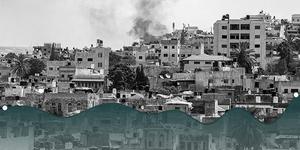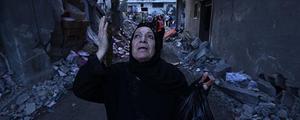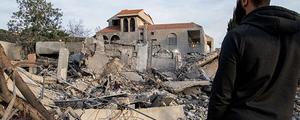LONDON -- Lebanon was poorly equipped to handle further instability within its borders before fighting between Hezbollah and Israel drew it into a widening war.
Many Lebanese surveyed this past May through July -- before the latest escalation -- were finding it “very difficult” to get by on their present incomes, and many were struggling to afford basics as well as experiencing daily stress, worry and pain.
In the latest survey, some of the neighborhoods in Beirut’s south suburbs that are under strict Hezbollah control were excluded, representing approximately 10% of the population.
Widespread Pressure on Incomes and Inability to Afford Basics
Lebanese have lived in a constant state of crisis in recent years. The economic crash in Lebanon began in 2019, but its roots go back much further. After many years of accumulating national debt through lavish borrowing, Lebanon failed to implement necessary structural reforms after its 2018 election, eventually defaulting on its foreign debt in 2020. Prices spiraled as the Lebanese pound lost most of its value.
The effects of the economic crisis are evident in the pressure it placed on household incomes and people’s ability to meet their basic needs. A majority (59%) of Lebanese at the time of the poll found it “very difficult” to get by on their present incomes.
More specifically, two in five Lebanese adults reported they were struggling to afford food (41%), and one in five (20%) struggled to afford shelter. While fewer Lebanese are struggling than in the early years of the crisis, Lebanese remain vulnerable to further shocks.
Most of Lebanon’s food supply is imported, and that supply chain would be put at severe risk from an all-out regional conflict. Much of the country's agricultural land in the south has been heavily damaged because of the almost daily missile exchanges between Hezbollah and Israel since the Israel-Hamas war began last year.
The regions closest to Lebanon’s border with Israel -- the Southern and Nabatieh governorates -- are most at risk from an all-out war and are struggling the most on their household incomes. Across these governorates, 80% were already finding things very difficult on their incomes and 49% were struggling to afford food, both significantly higher than the national average.
Poorest Lebanese Face Daily Struggles
In the years after the financial crash, Lebanon recorded some of the highest rates of daily negative experiences in the world. These remain prevalent today and particularly affect the poorest households.
The poorest 20% in Lebanon are disproportionately affected by worry (77%), stress (76%), pain (68%), sadness (52%) and anger (49%), compared with those who have higher incomes.
The poorest 20% of earners in Lebanon reported suffering considerably in their daily lives in the May-July poll, with 94% finding it very difficult to get by. They are likely to be the most vulnerable to the effects of the current situation.
Bottom Line
The escalation in fighting between Hezbollah and Israel is the latest in a long line of crises that have affected Lebanon in recent years. Over 1 million people across the country are thought to have been displaced amid the recent increase in Israeli airstrikes.
Lebanon’s economy is still floundering five years after the financial crash, with enormous pressure placed on people’s incomes, affecting their ability to meet their basic needs -- particularly in regions close to the border with Israel. The daily burdens of life -- including stress, worry and pain -- were weighing heavily on the most vulnerable even before this most recent escalation.
To stay up to date with the latest Gallup News insights and updates, follow us on X @Gallup.
For complete methodology and specific survey dates, please review Gallup's Country Data Set details.
Learn more about how the Gallup World Poll works.




